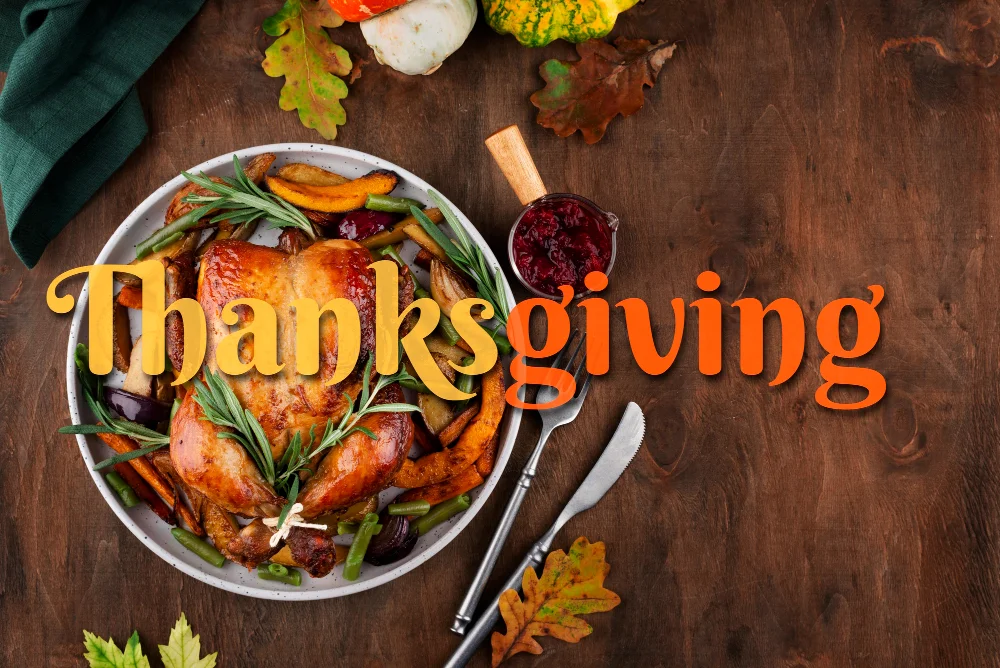“Ever been caught off guard when someone cheerfully says, ‘Happy Thanksgiving!’ and all you can manage is an awkward nod or a half-hearted ‘You too’?
You’re not alone. It might seem like a small moment, but how we respond to greetings—especially ones tied to cultural or emotional significance—can strengthen relationships, express gratitude, and even spark meaningful conversations.
Last year, I was spending Thanksgiving away from family for the first time, working in London. When a colleague said “Happy Thanksgiving!” I smiled, but my reply—”Yeah, same to you”—felt hollow. Later, I realised I missed an opportunity to connect more sincerely. That’s what inspired this guide: to help you navigate those seemingly simple yet powerful moments with warmth, clarity, and confidence.
Why Your Response Matters More Than You Think
Thanksgiving isn’t just a date on the calendar—it’s a gesture-packed holiday centred on appreciation. How you reply to someone who wishes you a Happy Thanksgiving can reflect your values, personality, and social awareness.
According to Dr. Tanya Thomas, a communication psychologist at UCL, “The way we respond to greetings like ‘Happy Thanksgiving’ can either close a conversation or open the door to real human connection.”
So let’s make sure you don’t just default to “you too.” Here’s how to elevate your response.
Classic but Thoughtful Responses
Sometimes, simplicity wins—as long as it’s said with genuine warmth.
1. “Thank you! Wishing you a lovely Thanksgiving as well.”
A polite and gracious option for colleagues, acquaintances, or casual friends.
2. “Thanks! Hope your day’s filled with good food and even better company.”
Adds a touch of personality while keeping things light.
3. “Appreciate it. Enjoy the long weekend!”
Perfect for professional settings when you want to keep it courteous and brief.
Pro Tip: Don’t underestimate your tone. A warm smile or genuine eye contact can double the impact of even a simple response.
Personalised and Meaningful Replies
Want to leave a lasting impression or deepen a relationship? Add a personal note.
1. “Thanks, Sarah! I hope your family gathering turns out just how you imagined.”
Using their name and referring to something specific makes it more personal.
2. “Thank you so much. I’m especially grateful for friends like you this year.”
This works beautifully for close friends or colleagues you’ve built rapport with.
3. “Cheers! Are you cooking this year or just enjoying the feast?”
Turning your reply into a question keeps the conversation flowing.
Real-World Tip: When I sent a voice message to a client last year saying, “I hope your Thanksgiving’s as delightful as your pumpkin pie recipe,” she replied saying it made her day—and yes, she shared the recipe again!
Humorous and Light-Hearted Responses
If the setting allows and you share a sense of humour with the person, these can lighten the mood:
1. “Happy Turkey Day! May your pants forgive you.”
Ideal for friends or colleagues who appreciate a good laugh.
2. “Thanks! I’ll be eating like I’ve trained for this all year.”
Adds a personal twist many people relate to.
3. “Cheers! May your gravy be lump-free and your relatives well-behaved.”
A cheeky nod to the quirks of the holiday.
Just remember: Humour can be subjective—know your audience before you joke about overeating or family drama.
Culturally Sensitive or Non-Participatory Replies
Not everyone celebrates Thanksgiving. Whether for personal, cultural, or religious reasons, some may wish to acknowledge the greeting without engaging in the holiday itself.
1. “Thank you! I hope you enjoy the holiday.”
Keeps it respectful without implying participation.
2. “Appreciate the thought—hope it’s a peaceful time for you.”
Suitable if you want to maintain warmth while staying neutral.
3. “Thanks! I don’t celebrate myself, but I hope it’s a good day for you.”
Honest yet considerate.
Expert Insight: According to diversity consultant Aisha Khan, “Acknowledging others’ joy while staying true to your own boundaries shows both empathy and authenticity.”
Text & Online Responses (Social Media Etiquette)
In today’s world, greetings often arrive via text, email, or social media. Here’s how to respond with personality:
1. “Thanks! Grateful for your kind words. Hope your table’s full and your Wi-Fi stable.”
A mix of gratitude and humour for digital-age celebrations.
2. “Appreciate it—sending good vibes and virtual mashed potatoes your way!”
Playful and friendly, especially for friends or followers.
3. “Thank you! What’s on your menu today?”
Encourages interaction and shows interest.
Quick Note: Emojis are fine but don’t overdo them. A single 🍗 or 🥝 can go a long way.
What Not to Say (and Why)
Sometimes our responses can unintentionally come off as cold, dismissive, or awkward. Here are a few to avoid:
- “Same.” – Feels too blunt and impersonal.
- “You as well.” – Polite but robotic.
- “I don’t celebrate.” – True, but may seem curt without added context.
Better Alternative: “I don’t celebrate myself, but I hope it’s meaningful for you.”
FAQs: Best Responses to Happy Thanksgiving
Q1: Can I just say “You too”?
Yes, but it’s better to add a warm tone or extra phrase like “You too—hope it’s a great one!”
Q2: How do I reply if I’m not American?
You can still say something thoughtful, like “Thanks! We don’t celebrate it here, but I hope you have a lovely day.”
Q3: Should I respond differently in a professional vs. personal setting?
Absolutely. Keep it polite and brief in professional settings, and feel free to be more expressive with friends and family.
Q4: Can humour ever be inappropriate?
Yes—avoid sarcasm or jokes about overeating with people you don’t know well.
Final Thoughts: Gratitude Is a Universal Language
Responding to “Happy Thanksgiving” isn’t just about etiquette—it’s about connection. Whether you’re sending back a heartfelt wish, a joke, or a warm nod of acknowledgement, your reply can shape how people remember their interaction with you.
And isn’t that what Thanksgiving’s about? Not the turkey, not the stuffing—but the gratitude we show one another, even in everyday moments.
So next time someone says “Happy Thanksgiving,” take a beat—and make it count.
Have a go-to response you love? Drop it in the comments—I’d love to hear how you make your greetings more meaningful.




